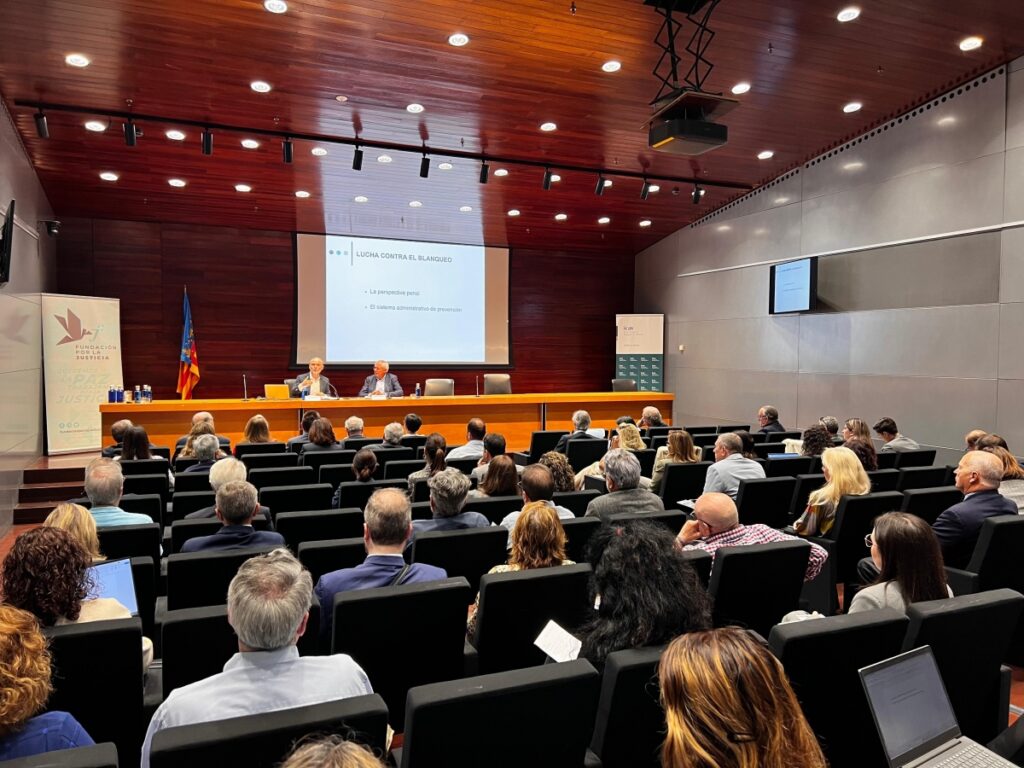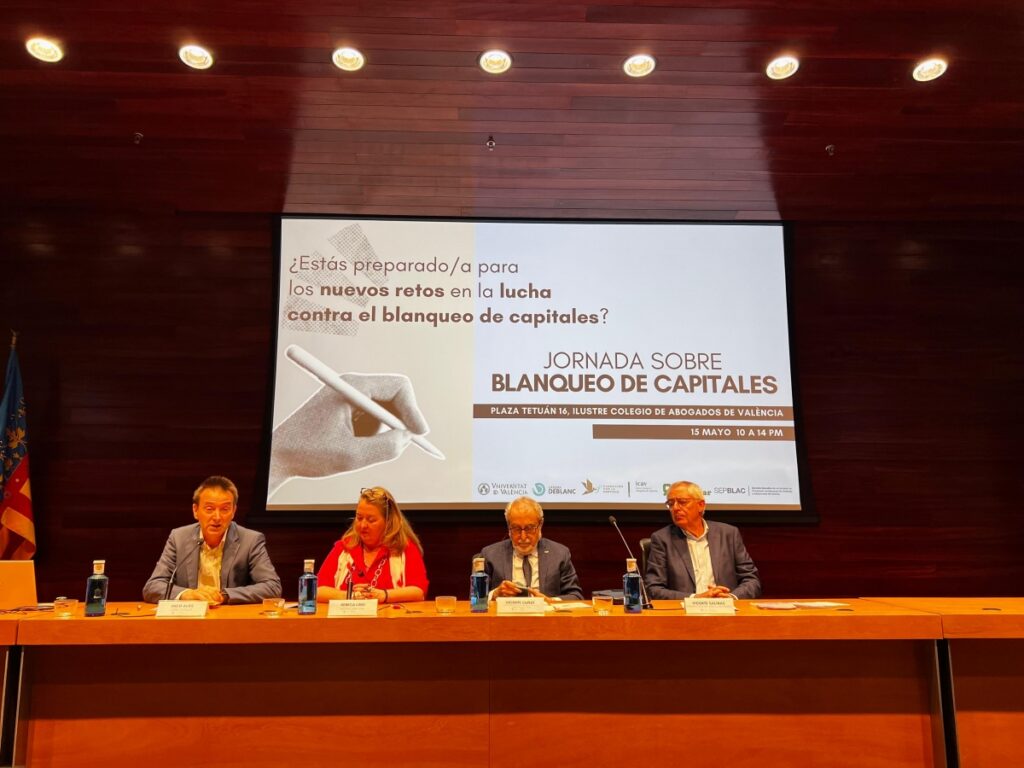Top experts analyze in Valencia the legal, institutional, and social challenges facing a changing European regulation.
The Valencia Bar Association (ICAV) hosted this morning's conference on money laundering, organized by the Foundation for Justice, in collaboration with Caixa Popular. The event brought together leading figures from the legal, financial, and institutional fields to address the regulatory changes taking place in Europe and their impact.
The vice-dean of the ICAV, Rebeca Lino, He opened the event by welcoming Paco Alós, representing Caixa Popular, and Vicente Cuñat, patron of the Foundation for Justice, who presented the foundation's work, focused on the defense of human rights and the promotion of a more ethical, social, and transformative justice. The event was moderated by Vicente Salinas, former inspector of the Bank of Spain.
For the Valencia Bar Association, meetings like this one are of great importance, since—as Lino later pointed out—“it is essential to offer specialized training in this area, as money laundering is a problem that goes beyond the legal sphere, as it has a direct impact on our society.”
Furthermore, for the ICAV, participating in this event organized by the Foundation for Justice, an organization of which it is a patron, "has been a true honor." The vice dean wishes to emphasize that these training opportunities reinforce its commitment to a responsible, informed legal profession prepared to face the current challenges of professional practice.
More ambitious European regulations in the fight against money laundering
During the meeting, experts agreed that the new European regulatory framework for the prevention of money laundering represents a far-reaching change, seeking greater coordination between countries, greater transparency, and more effective oversight of financial and non-financial activities.
Juan Manuel Vega, former President of the FATF, highlighted the importance of the new European Supervisory Authority (AMLA) and the need to strengthen cooperation between agencies. For his part, Pedro Comín, director of SEPBLAC, noted that the evolution of money laundering into an increasingly cross-border phenomenon requires uniform and coordinated responses across the EU.

Vicente Salinas addressed how prevention is being implemented in Spain, with an approach based on inspections targeting higher-risk sectors and operations, and emphasized the importance of learning from past mistakes to address prevention more efficiently.
Debate on criminal doctrine
The day culminated with a round table discussion on the Supreme Court's doctrine on the crime of money laundering, with the participation of representatives of SEPBLAC, with Juan Ramirez; Antonio Nuño, of the Prosecutor's Office; Catalina Vidales, professor at UV and DEBLANC and Mª Teresa Navarro, director of the Regulatory Compliance Department and member of the Ethics Committee at Caixa Popular, who agreed on the need to continue strengthening the culture of regulatory compliance.
Close with a message of commitment
José María Tomás, president of the Foundation for Justice, closed the event with a critical message: "Uniting the fight against money laundering with consumer protection seemed unthinkable. But we believe that from the highest levels of our European community can emerge the necessary sensitivity to also think about the ultimate consumer, who often suffers the most. That is why we are committed to a more just world and want to convince you that this change is possible with the commitment of each and every one of us." Tomás also highlighted former Uruguayan president Pepe Mujica, who received an award from the Foundation, as an example of the fight for hope and social justice.
The president of Fundación por la Justicia, José María Tomás, closed the event by reminding everyone that "we are all potentially vulnerable, but there are people who are already being directly affected by certain circumstances." He argued that prevention systems must take into account not only the legal dimension but also its social impact, especially on those who suffer the most from the consequences of money laundering.

"That's why we believe that linking the fight against money laundering with consumer protection is essential. We want a fairer world, and we believe it's possible if everyone takes on their part," he concluded. He closed his speech by quoting Pepe Mujica, awarded by the Foundation, who said: "What good is life if we lose hope of having or achieving a more just world?" He also invited those attending the event to participate in the work of the Foundation for Justice, which has numerous social projects and always needs the support of committed partners to continue building a more just world.
